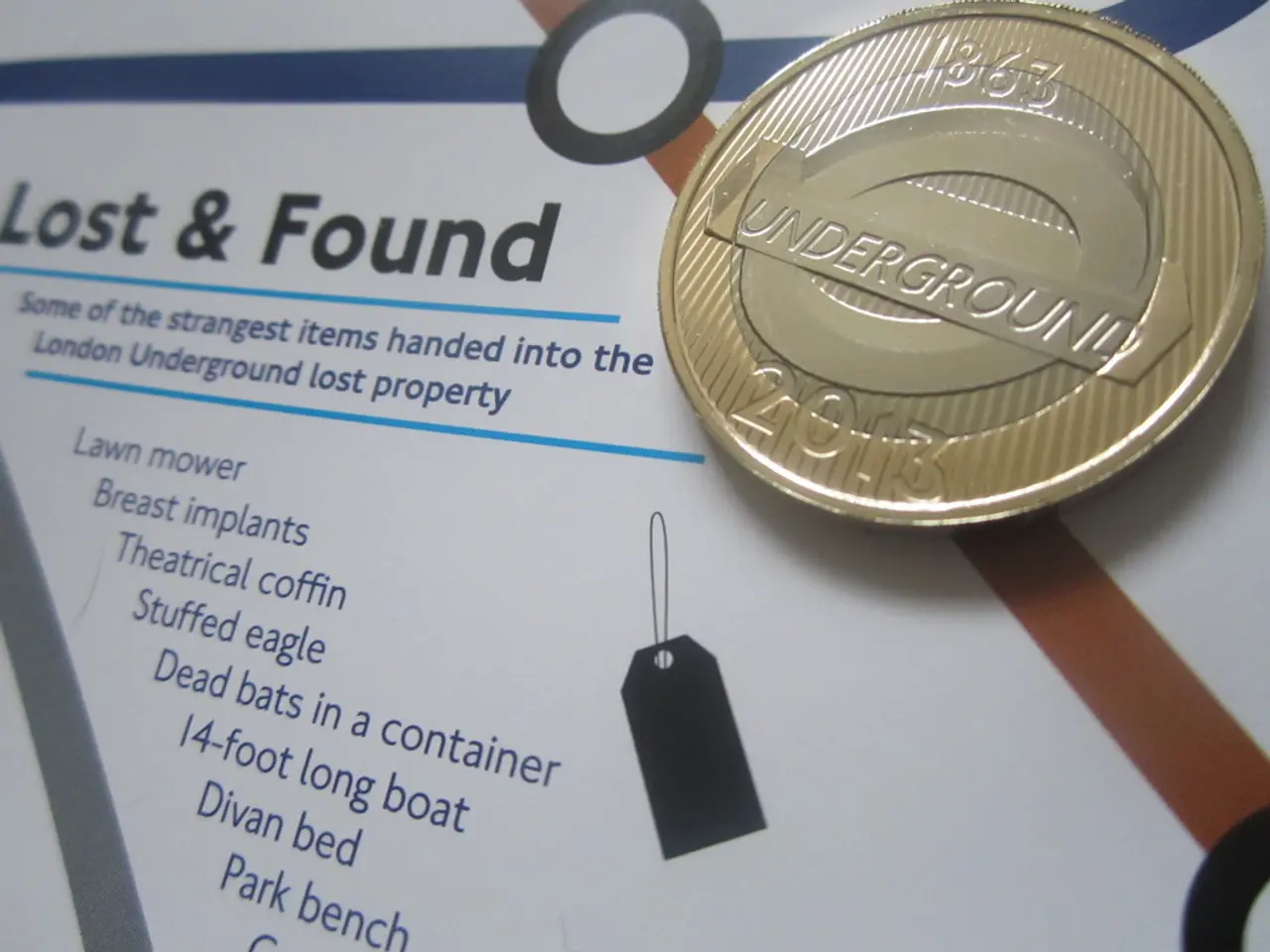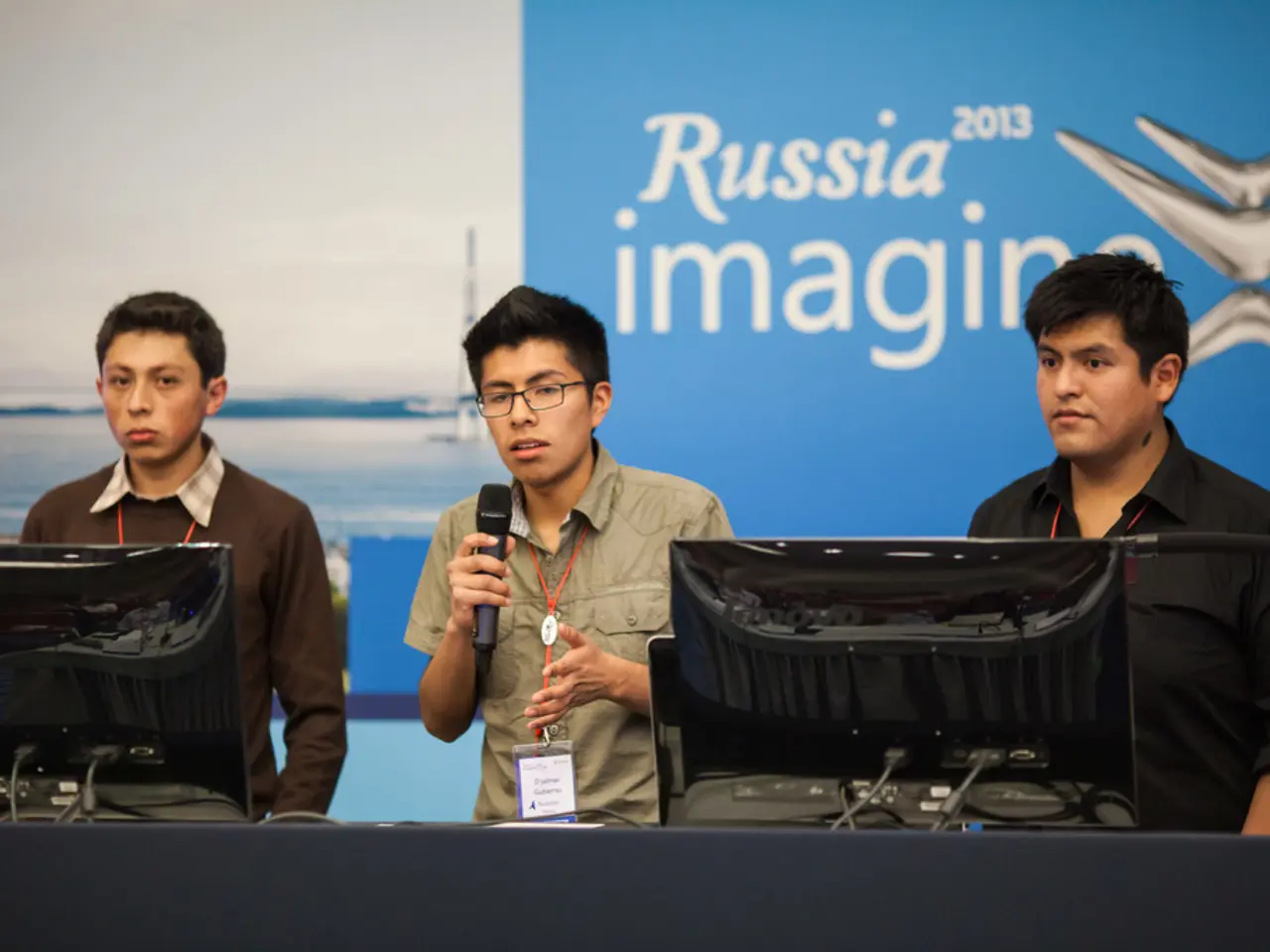Enhanced Financial Integration: Potential savings of $50 billion on foreign exchange costs due to compatibility from tokenized bank obligations
The Monetary Authority of Singapore (MAS) has spearheaded a groundbreaking global initiative called Project Guardian, which brings together policymakers and key industry players to transform cross-border transactions and foreign exchange (FX) settlements. The collaboration includes prominent members such as the International Swaps and Derivatives Association (ISDA), Ant International, BNY, HSBC, and OCBC.
At the heart of Project Guardian lies the utilisation of tokenised bank liabilities and shared ledger technology. This innovative approach aims to enhance liquidity, efficiency, and interoperability in financial markets through asset tokenisation. By leveraging these technologies, Project Guardian aims to replace traditional, slow, and costly intermediated processes with instantaneous, transparent, and cost-effective settlement globally.
Key proposals within Project Guardian include the development of design principles for tokenised bank liabilities to standardise practices and enable interoperability between different banks and platforms. The use of shared ledgers, such as blockchain or distributed ledger technology, facilitates near real-time, multi-currency clearing and settlement of FX transactions, reducing settlement times from days or hours to minutes or seconds, enabling 24/7 payment processing.
To ensure safety and efficiency, the collaboration also focuses on developing risk management frameworks and FX documentation. This includes governance models to manage multi-bank shared ledgers, mechanisms to handle price oracles for FX rate discovery, smart contracts for programmable compliance, and interoperability across different ledgers.
Ant International, a participant in Project Guardian, has demonstrated the practical deployment of these concepts in transaction banking services. The firm has developed a global treasury management use case for real-time multi-currency clearing and settlement using its blockchain-based Whale platform. This exemplifies the potential for tokenised bank liabilities and shared ledgers to revolutionise cross-border payments and FX settlements.
The collaboration between ISDA, Ant International, and the Project Guardian industry group will continue to explore the potential for tokenisation in various aspects of the digital economy. The development of more use cases for the digital economy aims to benefit businesses of all sizes, potentially lowering cross-border transaction costs by 12.5%, saving businesses more than $50 billion (S$64.2 billion) by 2030.
Scott O'Malia, chief executive of ISDA, emphasised the potential of tokenisation to revolutionise cross-border payments and FX settlements, increasing efficiencies and reducing costs and risks. The universal acceptance of an industry framework is crucial to achieve widespread adoption and realise substantial reductions in cross-border transaction fees, currently estimated at around US$120 billion annually.
As the digital economy continues to evolve, the use of tokenised bank liabilities, underpinned by shared ledger infrastructures, can optimise liquidity management in transaction banking. By tackling challenges such as cost, limited settlement windows, and time zone delays in the current FX system, Project Guardian and its collaborators are paving the way for a more efficient global financial market.
- The utilisation of tokenised bank liabilities and shared ledger technology, as part of Project Guardian, aims to revolutionise cross-border payments and foreign exchange settlements, potentially reducing transaction costs by 12.5% for businesses, saving them more than $50 billion by 2030.
- The collaboration between ISDA, Ant International, and other participants in Project Guardian will continue to explore the potential for tokenisation in various aspects of the digital economy, with the goal of universal acceptance of an industry framework to realise substantial reductions in cross-border transaction fees and increase efficiencies in the global financial market.




